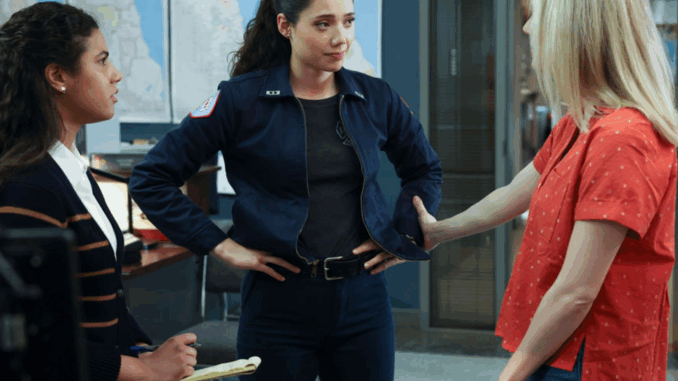
The Unfillable Void: Why Chicago Fire Still Can’t Replace Its Central Couple
For over a decade, Chicago Fire has been a cornerstone of television, built on a foundation of high-stakes action, found family, and, most importantly, compelling relationships. At the heart of that foundation stood Matt Casey and Sylvie Brett. Their departure, in separate but equally impactful ways, has left a massive, unfillable void in the show’s emotional core. While the series has introduced new characters and plotlines to fill the gap, it has struggled to find a new center. The show has a major problem: it hasn’t successfully replaced its central couple, and as we look ahead to Season 14, the situation is poised to get significantly worse, not better.
The Failed Attempts at Replacement
The long-simmering romance between Matt Casey and Sylvie Brett was a core narrative thread for years. Their relationship, built on a foundation of friendship, mutual respect, and emotional support, was a masterclass in slow-burn storytelling. When Matt Casey left for Oregon and Sylvie Brett eventually followed him, the show lost its romantic and moral compass. The writers have since tried to fill this void by elevating other relationships, but none have carried the same weight. While Kelly Severide and Stella Kidd are a beloved couple, their narrative has shifted from the journey of building a relationship to the struggles of being a married couple, a different kind of drama altogether. The show has also tried to create new “it” couples, most notably with the on-again, off-again relationship between Violet Mikami and Sam Carver. While their dynamic was compelling, it lacked the years of shared history and emotional depth that Casey and Brett’s had. Their recent split and the subsequent departure of Sam Carver further prove that the show has struggled to find a stable romantic anchor to carry the show forward.
Why Season 14 Makes It Worse
Heading into Season 14, the problem of replacing Casey and Brett becomes even more pronounced due to a series of significant cast changes. The show is losing its “next generation” of characters, a group that was meant to carry the show’s emotional weight for years to come. The departure of actors like Daniel Kyri (Darren Ritter) and the recasting of other key figures create a sense of instability that directly impacts the show’s ability to build new, meaningful relationships. Ritter, in particular, was a core member of the new guard, and his exit—even with a limited return—shatters the dynamic of the “rookie trio” that the show had spent years building. The show can’t build a new central couple or a new core emotional group when its new characters are so transient. It’s like trying to build a house when the foundation keeps shifting.
The focus in Season 14 is on re-establishing a sense of order with Mouch as the new Lieutenant and new characters joining the ranks. While this is necessary for the show’s survival, it pulls focus away from developing the deep, personal connections that fans crave. Every time a new character is introduced to a new role, the audience is forced to spend time getting to know them, rather than watching existing relationships deepen. This constant turnover prevents the show from creating a new “Brett and Casey” or a new emotional cornerstone. It’s a vicious cycle where the show can’t build the very thing it needs because its own internal narrative keeps undermining its efforts.
The Path Forward: Can the Show Recover?
Despite the challenges, there is a path forward for Chicago Fire to find its new identity. The solution is not to try and replicate the magic of Casey and Brett, but to build something entirely new. The show must commit to its new characters and give them the time and space to develop their own unique bonds. The focus should shift from finding a new central couple to exploring the complex relationships that already exist. The friendship between Stella Kidd and Violet Mikami, for example, is a powerful and under-utilized asset. Their professional and personal lives could be the new emotional core of the show.
Furthermore, the show needs to reinvest in the non-romantic relationships that made it great in the first place—the camaraderie of the firehouse, the mentorships, and the family bonds. The relationship between Ritter and Mouch was a perfect example of this, and while it may be over, the show can create new ones with the incoming cast. The key to Chicago Fire‘s longevity is not in trying to replace its icons but in empowering its new heroes to create their own legacies. Season 14 presents a major challenge, but it also presents an opportunity. The show must be brave enough to forge a new path, embracing the change and letting go of the past. Only then can it find a new, stable, and emotionally resonant center for the next era of Firehouse 51.